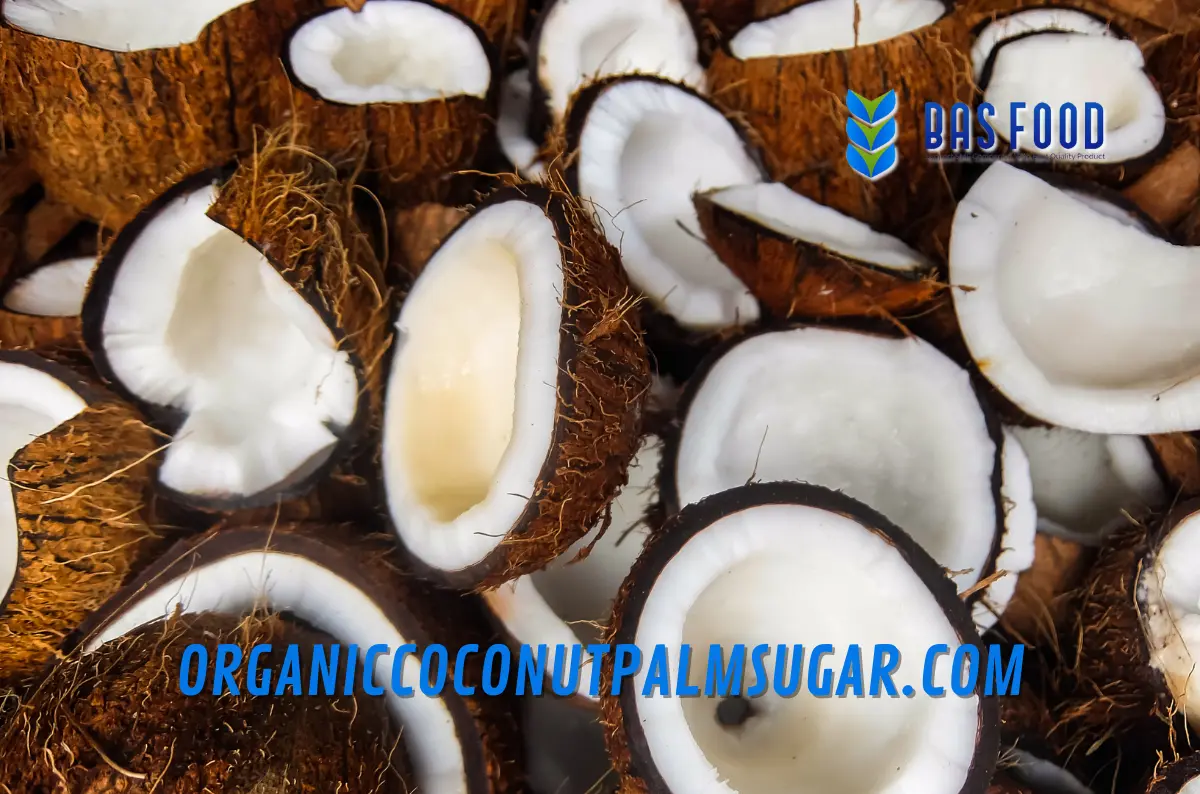The coconut industry has come a long way from traditional farming to becoming a global example of sustainability and circular economy practices. Among the many coconut-based products gaining attention, sustainable desiccated coconut stands out as a symbol of responsible production and eco-friendly innovation.
This shift isn’t just about meeting market trends; it’s about building a better future for both people and the planet. From eco-friendly coconut farming techniques to organic coconut processing and smart coconut waste utilization, producers are rethinking how every part of the coconut tree can be used efficiently and sustainably.
In this article, we’ll dive deep into how desiccated coconut travels from tropical plantations to international markets — all while reducing carbon footprints, empowering local farmers, and promoting environmentally conscious business models.

What Makes Desiccated Coconut Sustainable
At its core, sustainable desiccated coconut production means producing high-quality dried coconut meat with minimal environmental impact. It involves responsible sourcing, efficient energy use, fair labor practices, and waste reduction across every stage of the supply chain.
Unlike conventional methods, sustainable production prioritizes soil health, biodiversity, and water conservation. Farmers adopt natural fertilizers, maintain organic certification standards, and avoid harmful chemicals. This not only enhances yield but also protects ecosystems and supports long-term agricultural balance.
Moreover, sustainable practices ensure fair trade principles are followed — empowering smallholder farmers, supporting rural communities, and maintaining transparency from tree to export.
Eco-Friendly Coconut Farming: From Seed to Harvest
The journey of sustainability begins in the coconut plantations. Eco-friendly coconut farming focuses on regenerative agriculture. In this system, the soil, trees, and surrounding ecosystem thrive together. Farmers are trained to use natural compost, green manure, and organic pest control methods. These ensure that each tree grows healthily without synthetic inputs.
This approach helps maintain soil fertility and prevents erosion — a key challenge in tropical farming. Additionally, many farms integrate coconut cultivation with other crops, such as cacao or banana, creating agroforestry systems that enhance biodiversity and yield.
Water management is another critical element. Rainwater harvesting systems and drip irrigation help conserve resources, reducing water waste during dry seasons. Together, these methods create a farming model that sustains both the land and the livelihoods depending on it.
Organic Coconut Processing: Clean, Efficient, and Ethical
Once coconuts are harvested, the next step is organic coconut processing, where innovation meets integrity. Desiccated coconut production involves dehusking, shelling, blanching, shredding, and drying the coconut meat — all under strict hygienic and sustainability standards.
Modern facilities now use energy-efficient dryers powered by biomass or coconut shells, reducing dependency on fossil fuels. These advanced systems help lower greenhouse gas emissions while maintaining product quality and consistency.
Moreover, organic processors prioritize waste segregation and water recycling. The water extracted from coconuts during processing is often filtered and reused, while the coconut shells and husks are transformed into fuel, compost, or activated carbon. It’s a zero-waste approach that truly embodies the principle of sustainability.
Coconut Waste Utilization: Turning Byproducts into Resources
One of the most inspiring aspects of sustainable desiccated coconut production is the commitment to coconut waste utilization. Every part of the coconut tree — from the husk to the shell — holds potential economic and environmental value.
Coconut husks are processed into coir fiber, which is used for making ropes, mats, and eco-friendly planting materials. The shells become charcoal or activated carbon, essential for air and water filtration systems. Even coconut water, which was once discarded, is now processed into beverages or used in fermentation industries.
By maximizing the use of every coconut part, producers minimize landfill waste and generate additional income streams for local communities. This not only supports environmental goals. It also strengthens the circular economy model that modern agribusinesses aim to achieve.
The Role of Technology in Sustainable Coconut Production
Innovation plays a key role in the transformation of the coconut industry. From smart irrigation systems to AI-based quality control, technology is revolutionizing how sustainable desiccated coconut is produced and processed.
Farmers now use digital tools to monitor soil health, track crop growth, and optimize fertilizer usage. These tools ensure that resources are used efficiently, improving both yield and sustainability outcomes.
In factories, automation and precision drying technologies reduce energy consumption and ensure consistent moisture levels in the final desiccated coconut product. Moreover, data-driven traceability systems allow exporters to prove product authenticity, origin, and compliance with international sustainability standards. These are highly valued by global buyers today.
Exporting Sustainability: From Indonesia to the World
Indonesia, one of the largest coconut-producing countries, plays a significant role in supplying sustainable desiccated coconut to the global market. Exporters like CV Bonafide Anugerah Sentosa are leading the charge in ethical sourcing, organic processing, and international distribution.
As a trusted fishery, spices, and coconut supplier and producer, CV Bonafide Anugerah Sentosa ensures that each batch of desiccated coconut meets global food safety standards and sustainability benchmarks. The company works closely with local farmers to promote good agricultural practices and ensures fair compensation for their labor and dedication.
By integrating sustainability into every aspect of their operations — from farming partnerships to packaging — they contribute to Indonesia’s reputation as a reliable and responsible source of premium coconut products for international markets.
Why Global Buyers Prefer Sustainable Desiccated Coconut
The growing demand for sustainable desiccated coconut isn’t just a passing trend; it’s part of a global movement toward conscious consumption. Buyers and food manufacturers are increasingly prioritizing transparency, ethical sourcing, and environmental impact when choosing ingredients.
Sustainable products provide a competitive edge — allowing brands to meet consumer expectations while aligning with corporate social responsibility (CSR) goals. Moreover, sustainable sourcing ensures long-term supply chain stability, as environmentally responsible farming methods protect coconut trees from disease and climate stress.
For food brands, partnering with certified suppliers like CV Bonafide Anugerah Sentosa ensures not only premium quality but also a positive brand image that resonates with eco-conscious consumers worldwide.
The Economic and Social Benefits of Sustainability
Beyond environmental advantages, sustainable desiccated coconut production also brings substantial economic and social benefits. Fair trade practices guarantee that farmers receive equitable payment. This improves living standards and supports rural development.
Many coconut producers also invest in farmer education, training communities in sustainable techniques and organic certification compliance. This knowledge transfer strengthens resilience, ensuring that future generations can continue coconut farming profitably and sustainably.
Additionally, local employment opportunities in processing and logistics sectors help reduce urban migration. This keeps economic growth rooted in rural areas. It’s a holistic system where everyone benefits — from the farmer to the global consumer.
The Future of Sustainable Coconut Production
Looking ahead, the future of sustainable desiccated coconut production lies in scalability, innovation, and continuous improvement. Governments, private companies, and NGOs are collaborating to build stronger certification systems. They promote fair trade and expand access to green technologies for smallholder farmers.
Emerging trends such as carbon-neutral shipping, biodegradable packaging, and blockchain-based traceability will further enhance transparency and trust in the coconut supply chain. Meanwhile, increased consumer awareness will continue to drive the demand for ethically produced coconut products.
By investing in sustainability now, producers can ensure not only the long-term viability of the industry but also its contribution to global food security and environmental protection.
Conclusion: A Greener Path for the Coconut Industry
The journey of sustainable desiccated coconut — from the tree to export — is a testament to how innovation, responsibility, and collaboration can create lasting change. Through eco-friendly coconut farming, organic coconut processing, and coconut waste utilization, the industry is proving that economic success and environmental care can coexist beautifully.
As global markets continue to evolve, choosing sustainability isn’t just a moral choice — it’s a smart business strategy. Companies like CV Bonafide Anugerah Sentosa, as a trusted fishery, spices, and coconut supplier and producer from Indonesia, exemplify this approach by combining ethical practices with premium quality production for international buyers.
So, the next time you see desiccated coconut in your favorite dessert or snack, remember: behind that simple, sweet ingredient lies a powerful story of sustainability, innovation, and hope for a greener world.
Contact CV Bonafide Anugerah Sentosa how we can provide the best solutions for you. WhatsApp: +62 8213 4505 737, Email: info@bonafideanugerahsentosa.com / bas.mdir@gmail.com.

